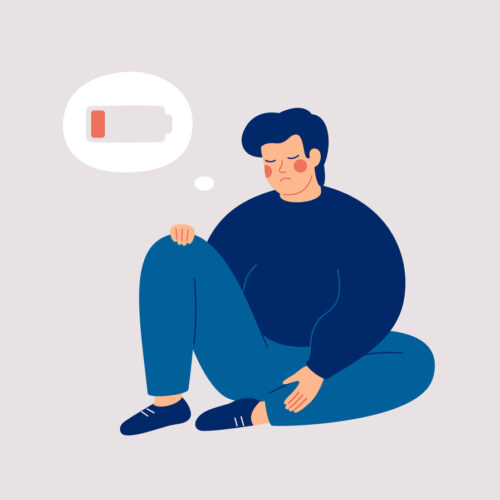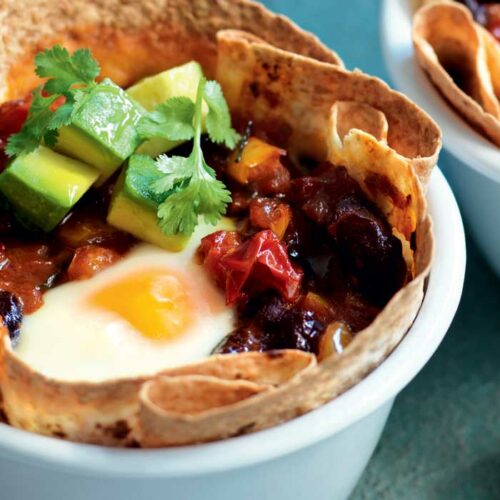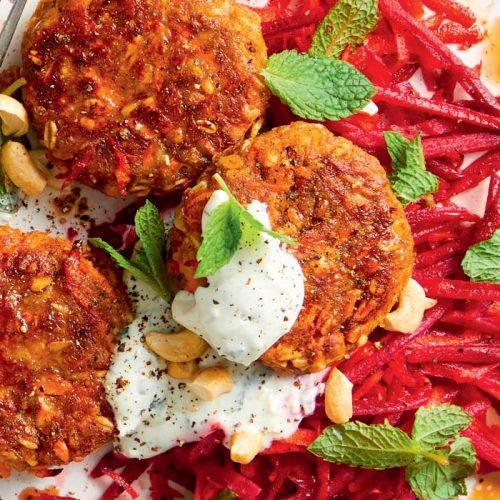
For many of us during coronavirus lockdown, being confined to our homes with fridges and pantries stocked with groceries has been the perfect recipe for unwanted weight gain.
Because a healthy weight is a key part of maintaining an effective immune system, it’s important to tackle the problem of lockdown weight gain without resorting to unsafe diets and unsustainable food restrictions. Here are 11 achievable ways to reach and maintain a healthy weight range without fad diets.
1 Track what you eat
Take some time to write in a food diary of what you eat in a day. Being honest with yourself about what food choices you are making is the best place to start to see if there are improvements that can be made.
Then make note of what you were feeling when you made those food choices. Were you hungry or were you bored, stressed or distracted?
If you find you’re eating more out of boredom or because you’re distracted, plan alternative behaviours for when those feelings arise such as calling a friends, doing some breathing exercises, playing cards with the kids or avoiding eating while on your computer or devices.
Knowing what your eating patterns are and what triggers you to eat when you’re not hungry puts you back in control of your food intake, which is a great place to start.
2 Plan your meals
The next step is to plan your meals. If you’re doing big grocery shops to avoid having to go so often, this is especially important.
By writing down what you’ll be making and shopping for those ingredients only, it’ll be easier to avoid having extra food in the house beyond what you’ll need for your planned meals and snacks.
Planning ahead will also help you avoid buying a whole lot of the processed packaged foods that stand out when you’re having trouble making your mind up at the supermarket.
Shopping online is a great way to make sure you buy more whole, satisfying, nutrient-dense foods instead of ultra-processed options that won’t last the distance.
Also, if you plan your meals you’re more likely to cook them, meaning you know exactly what’s going into your dishes.
3 Organise your fridge and pantry
This is especially important if you’ve stocked up on food items.
Healthy Food Guide nutritionist Claire Turnbull recommends putting any treat foods out of sight, while putting healthy options at eye level in the fridge or pantry.
What you see first is what you’re most like to reach for. Having cut up vegetable sticks, containers of nuts, fresh fruit and your favourite yoghurts at the ready will make choosing a healthier snack option easy.
4 Avoid alcohol or store it out of sight
Changes in routine, coupled with stress and limited social interactions, have contributed to some people consuming more alcohol than they normally would.
The World Health Organization recommends avoiding alcohol completely during the pandemic, because alcohol restricts immune function and has been linked to respiratory illness. If you’ve found you’ve been reaching for a tipple more often than usual that, in itself, is a very good reason to take a step back.
On top of the effects on your immune system, alcohol provides a lot of energy with next to no nutrition. For instance, one glass of beer can contain the same number of kilojoules/calories as 1.75 cans of Coke, while three glasses of white wine are equal to eating 6.7 slices of white bread, in energy terms.
Alcohol is also not a great stress buster because, while it may blunt stress signals for some people in the short term, feelings of anxiety and lowered mood after drinking are common.
Additionally, alcohol disrupts sleep, which plays a role in weight regulation and emotional stability.
To top it all off, alcohol may boost your appetite by increasing brain signals that indicate hunger, which may make you eat more than you need to.
5 Remember the perfect plate
The perfect plate is made up of specific proportions of each food group as well as portion sizes.
Ideally, your dish needs to consist of one quarter protein (say 150g raw lean red or white meat, fish or tofu), one quarter starchy vegetables or carbs (such as potato, rice or pasta) and one half non-starchy vegetables (such as leafy greens and broccoli or carrot).
6 Get your eight hours of sleep
Routines have, understandably, been disrupted by current events but it really is important to try to stick with a regular sleep and wake time.
Sleep is vital for a host of bodily functions, including supporting our immune system, and poor sleep has been associated with weight gain.
Researchers found a lack of sleep can affect appetite-controlling hormones, making us more likely to overeat.
The best way to get a good night’s sleep is to stick to a schedule. Try to avoid drinking alcohol before bed, exercise regularly (but not just before bed), keep your bedroom cool and dark and find ways to unwind that don’t involve screens.
7 Stay hydrated
Sometimes when we think we’re hungry, we’re actually just thirsty. Keep a bottle of water handy and if you feel like heading for the snack cupboard take a swig of H2O instead.
If you’re not keen on plain water, try sparkling, or add some sliced lemon and mint to your bottle, or drink herbal tea instead.
8 Eat protein at breakfast
Research shows eating at least 75g protein a day may help deliver weight loss, and that consuming one-third of your protein at breakfast is an important way to get this benefit. Eating a breakfast that contains protein, such as eggs or yoghurt, can help you feel full for longer, meaning you’re more likely to delay snacking.
9 Eat your fibre
A healthy gut is thought to help with maintaining a healthy weight. Fibre is the main food for your gut bacteria, so load your plate up with a good variety of fibre-rich foods, such as vegetables, legumes, fruit and whole grains, to keep them happy and healthy.
10 Exercise regularly
Exercise is great for our health and mood and it can also help regulate hunger hormones.
Research shows going for a brisk walk after a meal may help you feel satisfied for longer.
Choose a physical activity you enjoy doing, that way you’re more likely to keep at it.
Also, try to include some muscle strengthening exercise in your routine because muscle can boost your metabolism and help your body burn energy even when you’re not being active.
11 Eat mindfully
When it comes to mealtimes it’s important to remove any distractions, so you can focus on your food and how your body feels.
Ideally, sit down at the table and enjoy the look, smell and texture of your meal.
Try to slow your eating down and pay attention to when you start to feel full. Tuning into your hunger and fullness cues will help you eat only what your body needs to work at its best.
Article sources and references
- Alcohol hangover effects on measures of affect the morning after a normal night's drinking. ADELE Mc KINNEY, KIERAN COYLE Alcohol and Alcoholism, Volume 41, Issue 1, January/February 2006, Pages 54–60, https://doi.org/10.1093/alcalc/agh226https://academic.oup.com/alcalc/article/41/1/54/165609
- Alcohol and COVID-19: what you need to know. World Health Organizationhttp://www.euro.who.int/__data/assets/pdf_file/0010/437608/Alcohol-and-COVID-19-what-you-need-to-know.pdf
www.healthyfood.com










